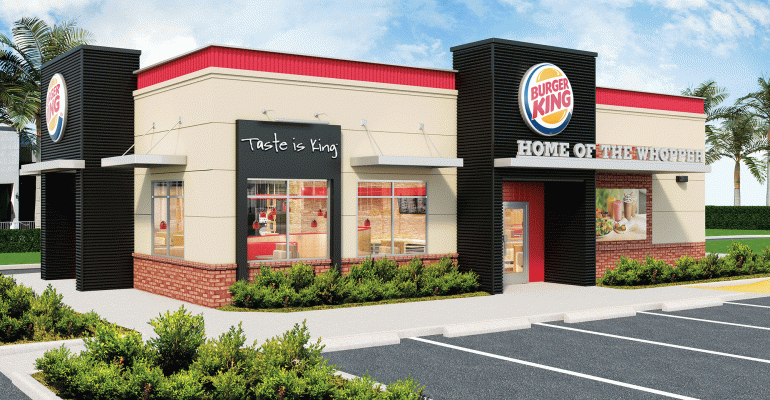 This is part of the Nation’s Restaurant News annual Second 100 report, a proprietary ranking of restaurant brands Nos. 101-200 by U.S. systemwide sales and other data. This report is a companion to the Top 100 report.
This is part of the Nation’s Restaurant News annual Second 100 report, a proprietary ranking of restaurant brands Nos. 101-200 by U.S. systemwide sales and other data. This report is a companion to the Top 100 report.
Since credit loosened after the recession, big franchisees have been getting bigger through acquisitions. They’ve made their presence felt on the Second 100 ranking of companies by their foodservice revenue.
Take GPS Hospitality LLC. Last year, the company bought 194 Burger King locations from Strategic Restaurants Acquisition Corp, which had been owned by Cerberus Capital Management LP. That followed purchases of 84 locations and 90 units the previous two years.
GPS Hospitality then sold 43 of those locations to another big operator, Carrols Restaurant Group Inc.
“Our model works extremely well,” GPS Hospitality Group CEO Tom Garrett said after the deal was completed. “You’re taking an old, tired brand that has 100-percent name recognition, and you reinvigorate it with people with growth-minded attitudes. You remodel restaurants and get systems in place.”
Low interest rates and intense competition among lenders have provided franchisees with financing to buy other operators or units sold by franchises in refranchising deals. Franchisors have been selling company units, and many franchisees have been eager buyers.
Applebee’s Neighborhood Grill & Bar sold the remainder of its company-owned units, which generated $19.2 million in revenue, to American Franchise Capital LLC in 2015. The sale also contributed to Applebee’s parent DineEquity Inc.’s 12-percent Latest-Year revenue decline.
Similarly, Investors Management Corp.’s revenue fell 30 percent in the Latest Year. The Golden Corral operator refranchised 33 units in the past two years.
In many cases, companies are opting to end relationships with restaurant brands or exit the restaurant business entirely, and are selling locations to other operators. In 2015, Schostak Brothers & Co. Inc. sold its 60 Burger King units to GPS Hospitality.

The same year, Domino’s Pizza Inc. operator RPM Pizza Inc. acquired 45 units from Pizza Properties Inc. RPM ended the Latest Year with 189 locations.
Another big exit came from DavCo Restaurants Inc., which, in May 2017, after the close of its Latest Year, sold 140 locations to franchisor The Wendy’s Co., ending its relationship with the company. Wendy’s subsequently sold the locations to NPC International Inc.
The acquisitions have provided fuel for some companies to grow quickly, which is certainly the case at GPS Hospitality, which Garrett formed in 2012. Garrett was formerly Arby’s CEO, and saw strong growth prospects in franchise operations.
In the Prior Year, his company generated an estimated $81.5 million. In the Latest Year, it generated an estimated $308.6 million.
“We get stronger as we continue to grow,” Garrett said. “We continue to add great people to our team. They’re very optimistic for their future. They’re excited for opportunities for their team, and for our team as well.”
The Second 100 includes companies based on revenue they derive from foodservice operations. That includes holding companies that own foodservice providers, like private-equity groups or publicly-traded holding companies.
Because they operate a lot of units, franchisees fill many Second 100 spots, although private-equity firms own many of them.
At the top of this ranking is Acon Investments LLC, owner of RMH Franchise Corp., an operator of Applebee’s units in the Southeast and Midwest. RMH generated $393.9 million in foodservice revenue in the Latest Year, up 6 percent from the Preceding Year.
While mergers and acquisitions make for significant movements in the ranking, so do struggles.
At Famous Dave’s of America Inc., foodservice revenue fell 23 percent in the Latest Year, following a more than 12-percent decline the Preceding Year. Over the past two years, Famous Dave’s estimated U.S. revenue has fallen from $148.1 million to $99.9 million, a decline of 33 percent. Famous Dave’s company-owned units have struggled with same-store sales declines. The company has sold some units to franchisees and closed others.
Then there’s Day Star Restaurant Group, where estimated revenue fell 23.7 percent due to the closure of 50 Lone Star Steakhouse & Saloon locations and 10 of 25 Texas Land & Cattle unit from April 2016 through January 2017.
On the other end is Shake Shack Inc., where strong unit growth and improving same-store sales more than doubled estimated U.S. revenue, from $112.6 million in the Prior Year to $260.5 million in the Latest Year.
Contact Jonathan Maze at [email protected]
Follow him on Twitter at @jonathanmaze






